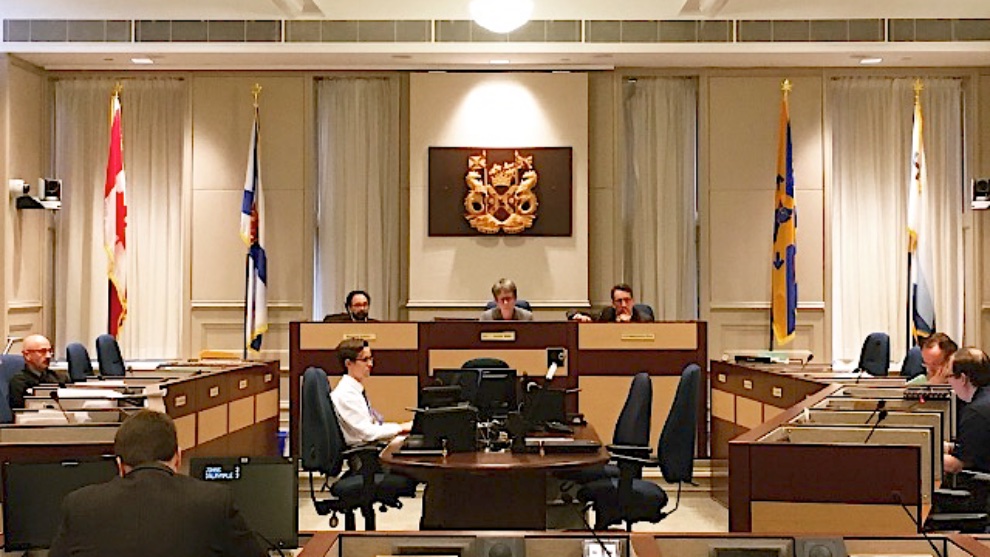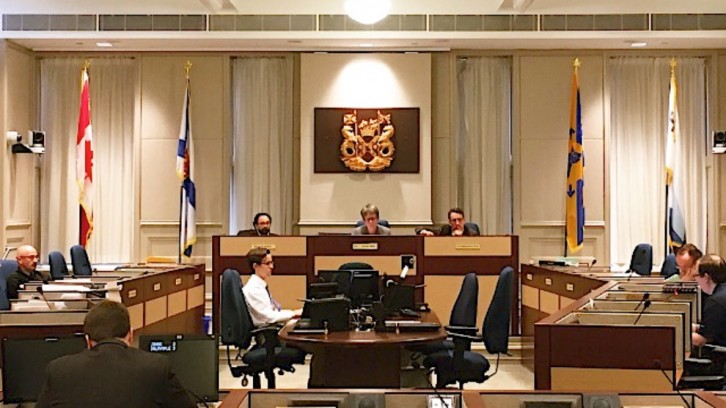Waste management
Aging compost facilities ‘a wonderful problem’: councillor
Nova Scotia’s efforts 20 years ago to take the lead on waste management has put the province in a good position now, says councillor

caption
Halifax City Council met Wednesday to discuss the
caption
Halifax City Council met Wednesday to discuss theHRM councillor Jennifer Watts says the fact that Nova Scotia has aging compost facilities is “a wonderful problem.”
During a city council meeting, Watts pointed to Nova Scotia’s pioneering solid waste management strategy.
“We’re here at this spot because we made a tremendous move forward 27 years ago,” she said. “This is the natural evolution of this municipality taking the incredible leadership role [it did] decades ago.”
An environmental pioneer
Beginning in the 1990s, Nova Scotia became recognized as a world leader in progressive environmental policies, starting with its solid waste management strategy.
“Halifax was the first to do source separation collection at the curb for residential organics,” said Matt Keliher, the city’s solid waste manager.
Ten years later, the province took on the ambitious initiative to cut in half its 90 per cent dependence on coal powered electricity. In 2010, the province made a commitment to source 25 per cent of its electricity from renewables by 2015 — 40 per cent by 2020.
Meeting this goal would place Nova Scotia “in a position of global leadership,” according to a 2010 Department of Energy report.
Catherine Abreu, energy co-ordinator at the Ecology Action Centre, is praising the province’s efforts.
“The innovative approaches our province has so far taken to developing renewable energy…from the electricity sector contribute to Nova Scotia being one of the only provinces expected to meet its 2020 climate pollution reduction goals,” said Abreu.
Anaerobic digestion
Now, with many jurisdictions in the province “having trouble producing quality compost” almost 20 years later, Abreu says Nova Scotia has a lot to gain from updating its solid waste technology.
Last week, a business case to “introduce an anaerobic digestion processing capability” to the city’s outdated Dartmouth composting facility, was put before Halifax regional council.
Keliher sees three potential benefits to adopting an anaerobic digestion system:
- renewable electricity generation
- fertilizer
- composting

caption
An example of the organic waste used to make compost.“You (can) turn the methane gas that’s produced into (renewable) electricity. Then with the material that’s left over, you can apply that as a fertilizer – all while composting at the same time.”
Watts is enthusiastic.
“I think we have a tremendous opportunity,” she said. “It’s a good place to be.”
She anticipates the upgrades to be completed by 2019.
A ‘step backwards’
The cancellation of the province’s Feed-in Tariff program eliminates the potential benefits of selling the by-products of anaerobic digestion.
Abreu says the province has an impressive environmental record, but views the cancellation of the program as “an unnecessary step backwards.”
She says council will be less likely to commit to the “extremely expensive” system – even if it’s at the expense of the environment.
Composting future
Despite the uncertainty surrounding Nova Scotia’s solid waste resources and renewable energy future, councillor Watts doesn’t want Haligonians to lose sight of the progress that Nova Scotia has made.
“We’ve embraced composting, and we’re going to continue to do that into the future,” said Watts.

